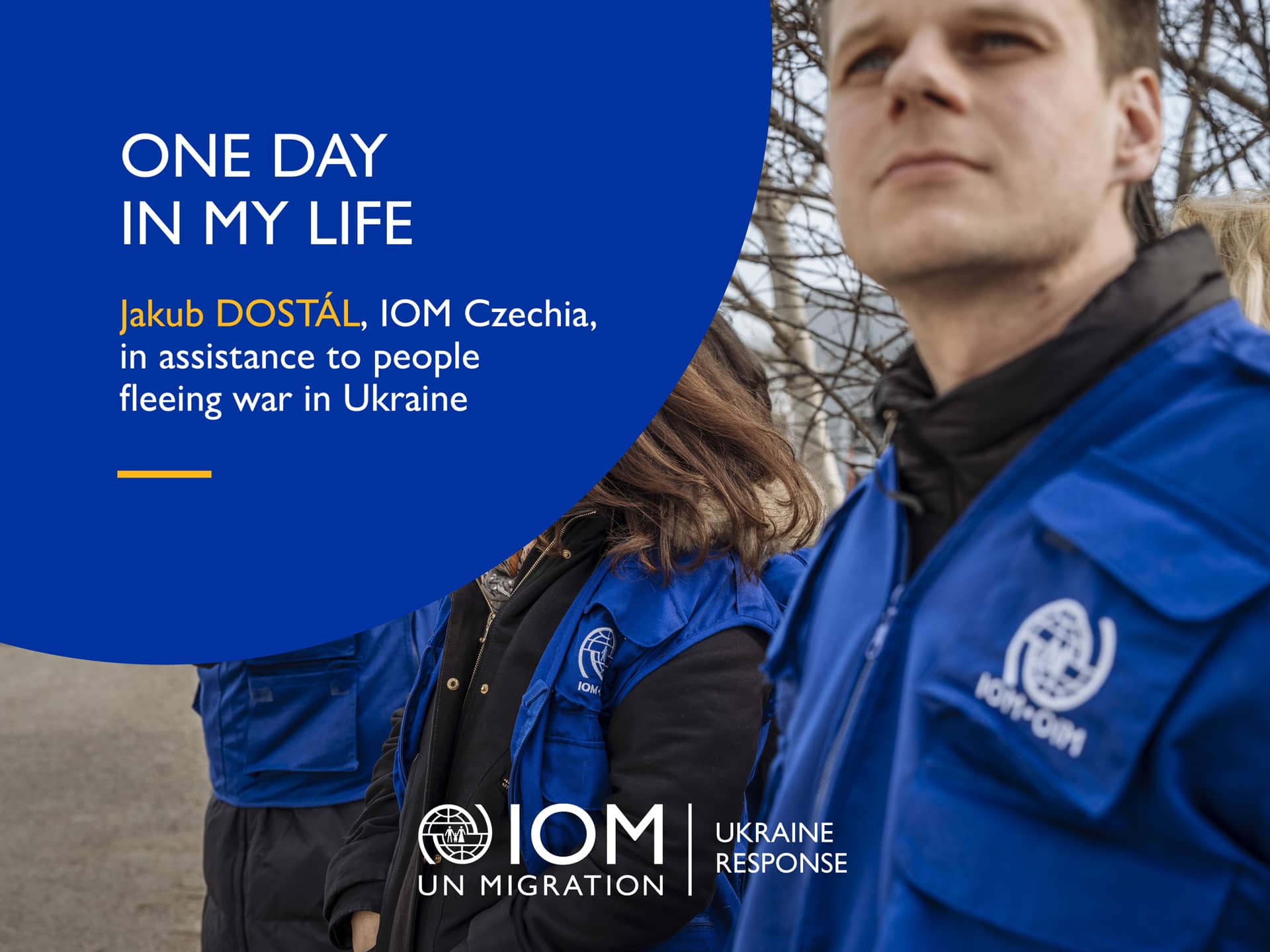Jakub Dostál, IOM Czechia; currently based in Eastern Slovakia
Right this morning, like every other morning during the past months at the IOM Office in Kosice where I am based now, I receive inflow and outflow data from Slovak authorities that I process for colleagues in Slovakia and abroad.

Right after I look at the daily data collected and sent to me by our field staff on needs and intentions of people coming from or returning to Ukraine. And why? Based on this data, reports are produced that help IOM to better assess the mobility, vulnerabilities, needs and intentions of displaced persons and ensure that assistance provided responds to the needs of conflict-affected populations. Until now, we have published four reports that analyze displacement of Ukrainians and TCNs.
Before coming to Slovakia for my Short-Term Assignment, my duty station was in Prague, the Czech Republic. When the war in Ukraine started, I could not sleep. Each night, before going to bed I prayed that Kyiv would make it to the next morning. The hardest thing for me was that the only thing I could do was to follow the news from the battlefront. During a joint IOM Slovakia and IOM Czechia meeting I felt a strong urge to leave the Czech Republic and move there where help was needed.
I asked to join the Emergency Response Team of IOM Slovakia, underlining my motivation and availability to leave at any given time. The next day I was packing my bags to leave for Slovakia where I have been working since the beginning of March 2022.
Weeks in Kosice vary. There are days when I spend several hours replying to emails and coordinate with colleagues, the IOM Regional Office in Brussels, partners, or other UN agencies. I enjoy this coordination, but my heart has always laid in the field where I can be in direct contact with the people in need of assistance, as well as with our colleagues who tirelessly provide assistance and legal counselling.
At the beginning of the war, I was in the field every day. During the first six to seven weeks colleagues and I worked around 12 to 14 hours a day including the weekends to set up and well organize the emergency response to best assist those fleeing Ukraine. My work has shifted since the situation in the country calmed down and I only go to the field about once a week to assist in monitoring the current work and meet with our field staff and partners.
As I do not speak Ukrainian or Russian, I could not directly exchange with people coming from Ukraine as it was the case when I served at a Peacebuilding and Humanitarian Aid Response to the Syrian crisis where I could get close and hear our stories of Syrian refugees, because I speak Arabic. This is something that was limiting to a certain extent and I felt a jolt of life whenever I could be close of someone who had to flee Ukraine, expressing at least my solidarity via facial expressions, body language or through one of our Ukrainian or Russian speaking field staff.
Our Emergency Response Team has been providing critical aid to those in need since the outbreak of the war. I couldn’t be more proud to be a part of it. I feel humbled every day by the fact that I work for IOM.
More information about IOM assistance to people fleeing war in Ukraine.
This view presented herein do not necessarily represent the opinions of the International Organization for Migration (IOM).
 Slovenčina
Slovenčina
 Українська (Україна)
Українська (Україна)
 English
English
